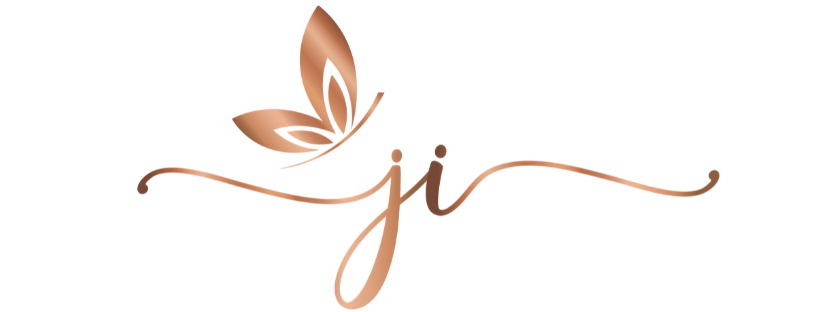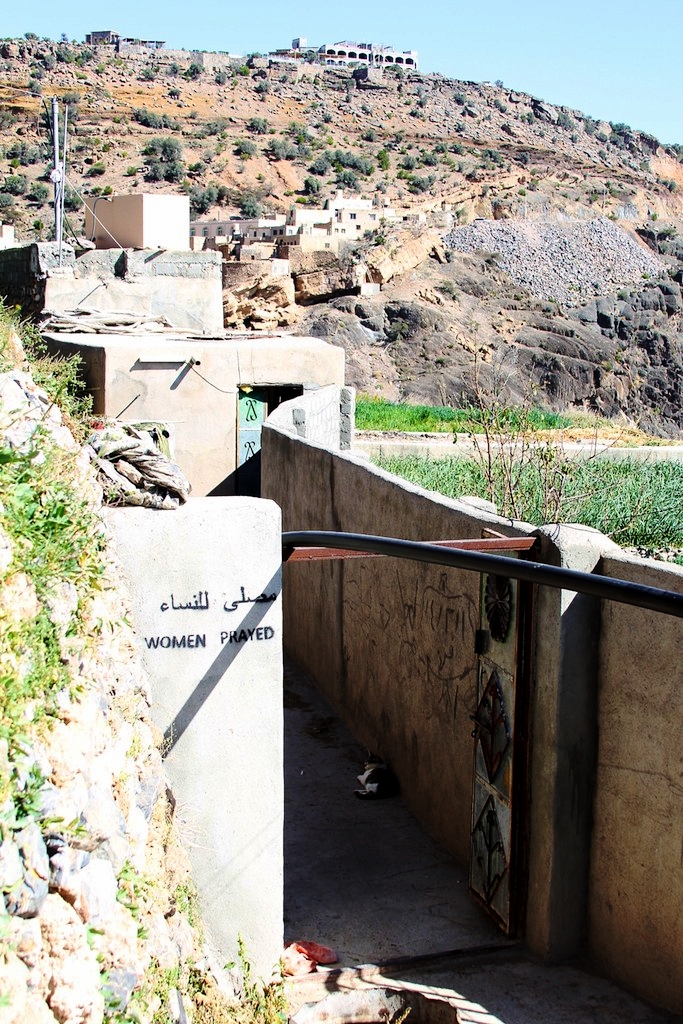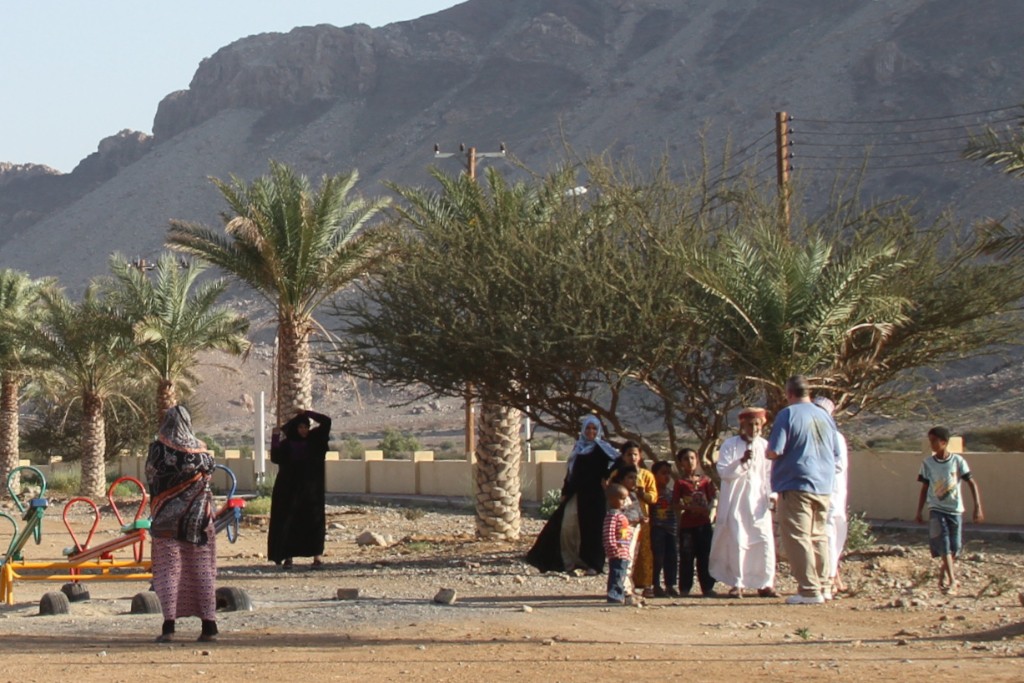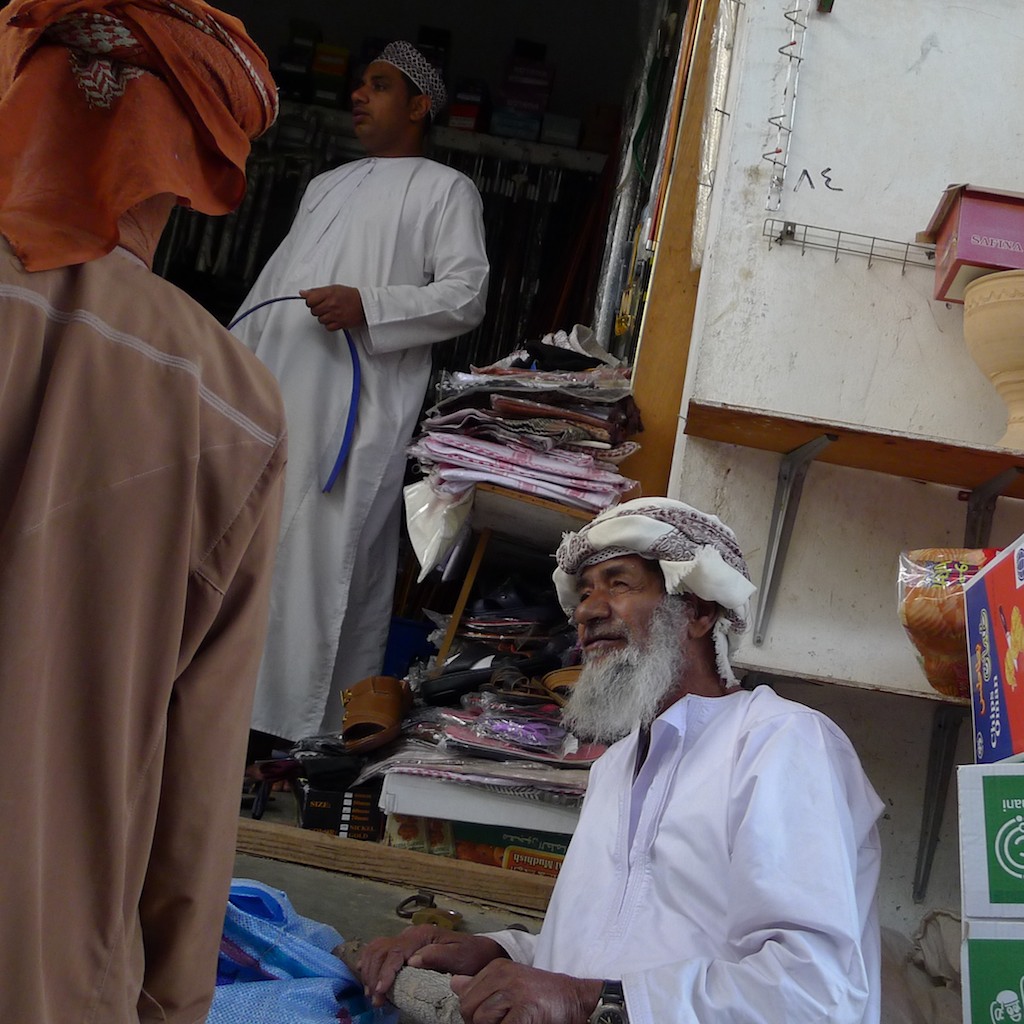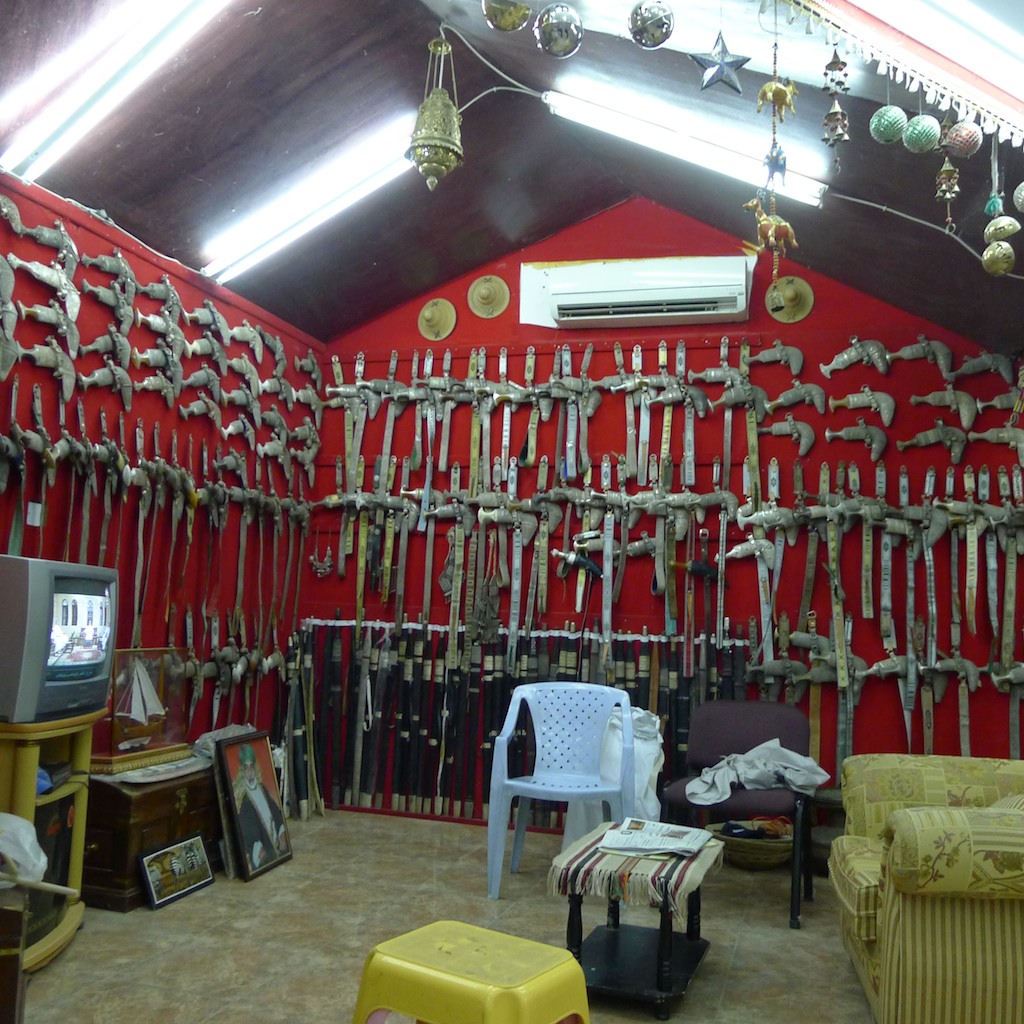Day 4: Feel the Culture, Feel it Burn
Our fourth day on vacation started a bit early. We both woke up around four in the morning and couldn’t get back to sleep.
“Let’s go outside and look at the stars,” my husband suggested. Thinking myself just the luckiest girl to have such a romantic husband, I quickly threw on my fleece and sneakers and followed him outside. When we had arrived at dusk the previous day, it was markedly colder up in the mountains than it had been in the desert or even by the water. But now, at 4:00 a.m., with a brisk wind blowing past our elevated patio, it was freezing. I was hugging myself, jumping up and down, while marveling at the explosion of stars above us. But after a few minutes, I couldn’t take it anymore. “I’m heading in,” I said, looking over to see my husband standing on the patio, with his head bent over his SmartPhone. “What are you doing?”
“There’s no internet signal in the room, and my friend from Flushing asked to play Words with Friends. I couldn’t ignore him.”
“Look at the stars,” right! “Romantic husband,” right! I promptly returned to bed and went back to sleep.
Upon re-waking at the correct time, we had a nice breakfast and planned our route for the day. There were at least six terrace villages for us to explore, plus one marked look-out. We could drive to all of them, or we could have the hotel drop us off at one and we could hike back, or we could even hike directly out from the hotel.
One additional variable was our last-minute decision to buy a clay water jug for a friend. He’d commented on them in Cairo, and said that they always had the freshest water. In Cairo we’d see them balanced on stands for actual use, but never for sale. We’d been seeing them all over Oman, and decided that we’d try to get him one. We asked at the hotel, and were told that the town of Bahla was known for making them, and after seeing that Bahla wasn’t that far from Ibki, at the base of the mountain, we thought we might try to squeeze that in today as well.
So, knowing our lofty goals, we headed out first to the “Princess Diana Overlook,” which was basically next to our hotel. Apparently she had camped here once, hence the claim to fame. If you’re an avid fossil hunter, this would be a good spot to start, and the view was definitely stunning, but as the whole area was on a plateau (Saiq Plateau), the view was basically stunning from all sides, so I don’t think it really warrants a separate stop (though I did spot another gecko and some delightful goats, which was fun).
We decided to drive out to the farthest terrace village, Wadi Bani Habib, first. Finding any information on the villages, when and why and how they were built, is not easy. But it seems that due to the location and unique weather, this area is a perfect place for orchards and gardens, and is renowned for its pomegranates, apricots, figs, dates, grapes, saffron, and especially roses. In March and April, when the 35-petal rose named for Jebel Akhdar is in bloom, the fragrance apparently permeates everything, and distilling of the petals for rose water is in full force.
All of these separate villages have been formed out of the sides of the mountains, creating layers and terraces for houses and orchards and farming. They’ve even created an amazing irrigation system, called aflaj (singular, falaj), involving labyrinthine channels carrying the water to all levels. Wadi Bani Habib, is only about a 15-20 minute drive from the hotel and it’s labeled (on the hand-drawn map) as “Ancient villages,” and they certainly look it. But I’d love to find out whether they’re 500 years old, or just 50.
As we peered over the edge from the parking area (complete with modern bathroom), we saw stone houses across the valley, built into the side of the cliff in layers. Even from this distance, my inner 8-year-old yearned to race over and explore every inch. It definitely looked abandoned, but having seen houses in Egypt and Tanzania, in particular, I’ve learned not to assume something is “unlivable.”
We started down the seemingly hundreds of stone steps. As I turned a bend, I came upon two local women climbing up. We greeted each other as we passed, and each continued on their way. My husband and I kept stopping to take pictures on the way down, and at one point I heard a noise and turned to see one of the women scampering down the cliff with a large bag perched on top of her head. Whether she wanted to avoid us, or it was just easier for her, she had foregone the stairs and just used the hillside; I’m thinking she’s been hanging out with the goats a lot lately. This happened multiple times with both women and another man carting down 25 kilo bags (55 pounds) of animal feed, which further shamed us and made us yearn for a comfy cushion and the TV remote.
Despite our shame, we made it to the bottom of the valley, which now meant we were looking up at the houses. In hindsight, we should have climbed up the opposite side and done a little snooping, but we decided this time to just take a few pics then turn and face the, now thousands, of steps climbing back up (they always multiply when you turn your back). With much huffing, puffing, and increased stops for more pictures (and air), we finally made it back to our car.
From here we headed back to the other villages. We opted to skip Sayq village, and drove on to the village of A’Sherageh. As we approached the houses, the road suddenly became very steep and narrow and my husband felt it was too tight to drive down. So he backed up and parked under a tree, leaving us no option but to walk down. So we grabbed our cameras, and started the trek. As distance goes, it certainly wasn’t far, but I will admit that despite his proclivity to over-worry things, he was right, this was a very steep and narrow and twisty road. So we shuffled down it, around curves to the right and curves to the left, passing interesting homes all wedged in together.
Just as we came around another bend, my husband suddenly exclaimed, “Oh, good grief!” After our arduous trek, we had finally made it to the parking lot. I half-jokingly said, “Go and get the car,” but he just looked at me. The village was under a bit of construction, so we really couldn’t wander down too many of the streets, but off to the right there was a man perched on a wall. My husband approached him and after a mutual greeting of “Peace be with you,” he learned that the man was a foreman (bricks or carpentry, or something), and had lived here for 30 years. He was probably only about 45, but looked closer to 92; a definite wake-up call for the benefits of sunscreen. Then, much to my husband’s surprise, he said he was Pakistani (move one from “made Omani friend” list to “made Pakistani friend” list).
Now was the hike back to the car. On the way up, as I was relentlessly muttering my complaints in my husband’s general direction, he turned and said, “Feel the culture!” And I immediately responded, “Feel it burn!” We made it back up to the elevation of our car, but not without a lot of laughing and gasping for air. See, sometimes worrying is not fruitful.
The last village on our visitation list for today was Al Ayn. Here we actually parked in the designated parking lot and wandered in. Passing a local villager, my husband asked politely if it was okay for us to wander around. The man gruffly pointed out that I could not enter the mosque, but there was a separate women’s mosque if I was interested. We hadn’t even thought of the local mosque, but now we were curious, so we continued on, passing under tunnels made by the houses above.
Coming out from the tunnel, we saw a hand-made sign saying “Women Prayed” with an arrow, so leaving my husband behind I followed the narrow path. It led to the edge of the terrace overlooking the valley and turned, and I came upon three young women coming the other way. I greeted them and stepped aside. From my vantage on the step, I could see the lush green terraces falling off to my right, and to the left the path led to a cement room that was apparently the women’s “mosque.” Figuring I probably shouldn’t go further, plus it was guarded by a very well-fed snoozing cat, I turned and retraced my steps.
Feeling that we’d gotten a good taste of these amazing terraces, we decided to head down the mountain and address adventure number two for the day: the hunt for a water jug. We found several “Bahla mosque” listings in the GPS, so figuring that most towns have a mosque near the center, we chose one at random and headed off. We drove down the mountain without incident and followed the GPS precisely. Within two hours, it had led us to the remotest mosque in all of Oman, I’m sure. There was nothing in sight other than a mosque and a large playground next to it. Otherwise we had mountains, trees, shrubs and sand. That’s it. There wasn’t a Gents Tailor or pictures of restaurant food anywhere nearby. There was a group of people with children on the playground, so we drove over. My husband walked over to two men, to see if we could get directions.
I sat in the car and watched as he first approached the younger man. As they chatted, all the children slowly gathered around staring up at my husband, then the older man got in the mix as the women stood off to the sides. This lasted for several minutes and at one point the older man crouched down and started drawing in the dirt. Knowing my husband doesn’t have the best sense of direction, I did wonder if I should get out and join the crowd, but soon after, he turned and came back to the car. He was telling me the directions he’d been given when I noticed that the older man was shuffling towards us. I pointed this out to my husband and then rolled my window down so they could continue chatting.
My Arabic may be minimal at best, but I’m getting really good at reading body language, and I could tell that “Pops” (as we affectionately called him) wanted to get in our car. As I was trying to explain this to my husband out of the side of my mouth, Pops started tugging on the rear door handle behind me. Not expecting anyone to ride with us, we’d pretty much trashed the back seat, so I was wildly trying to reach around and shove aside our empty water bottles and maps and fleeces to allow him room to put his tiny, sun-worn frame. Suddenly, with minimal effort, we had our very own Omani!
He spoke rapid-fire mush-mouth Arabic, even I could tell that, so to get my husband to go in the right direction, he relied on the yelling and spastic hand gesture communication method. We finally figured out that we’d be following one of the women in her car, with the seven children, back to the main road. I wasn’t sure at this point just how far Pops was going to go with us, but I figured this was what they meant when they said, “It’s about the journey (with the ancient Omani),” so I sat back and went along for the ride.
As my husband drove along, they chatted a little, and we learned that Pops, who’s real name was Khalif bin Said, used to work for the telephone company (not sure what he did), and he owns a house in Muscat as well as one here in Bahla. My husband innocently inquired if the woman driving the car was his daughter, and Pops replied with a mush-mouth response in which I heard the word for wife, and we suddenly realized that you probably shouldn’t ask such a question.
When we made it to the main road and civilization again, Pops gestured for us to pull over behind his daughter/wife/driver. We did, and he offered some more mushy directions and fervent hand waving, and we thanked him profusely and assured him we understood, and in response Pops told us quite succinctly, “I am a citizen of this country, and if you didn’t know something, then it is incumbent upon me to teach you.” In that one moment, I realized how rare it is to meet someone for just a few minutes who touches you deeply, but Pops did. And through this little act of kindness, Pops single-handedly skyrocketed the Omani people to the top of the “Nicest-to-strangers” list. He’ll be hard to beat.
Unfortunately, we failed Pops entirely and managed to get lost once again. But as I was fiddling with the GPS, I suddenly found, “Bahla souq.” Why we couldn’t find it in the first place, I don’t know. Sometimes I think fate intervenes; otherwise we would never have met Pops. But we plugged in the coordinates and headed out and within 25 minutes had arrived.
Now, to be fair, the Bahla souq was more like a collection of alleys and shops in which the locals recline and chat. And upon turning off the main road, we saw immediately what we were looking for, a pottery shop with clay water jugs hanging outside. The shop was small, but we managed to pick out two jugs, one for our friend, and one for us for all our troubles. But before we could pay, the proprietor insisted that we try the water from the dripping jugs hanging outside. As much as my husband loves water, he equally hates tuberculosis, so I watched with great amusement as he offered a quick prayer to Saint Therese Patron Saint of Tuberculosis before he drank from the jug.
So after a quick and easy exchange we carefully carried our hard sought-after purchases back to the car. Feeling mighty good after our find, we thought we might try our luck at buying a khanjar dagger, so my husband asked the water jug proprietor where to go. We meandered down the abandoned alley he had indicated and then found ourselves in an open courtyard surrounded by a few open shops, including more water jugs. My husband approached a handful of men sitting around and asked about the daggers. One of the men said he had some, and pulled out three, tarnished, very used daggers.
He was asking almost $400 for one dagger, so we politely declined. Then another man, sensing a possible sale, had us follow him to his store, which was really an open stall with a desk and chair, and he brought out two, equally tarnished and used daggers, complete with tattered belt. So to serve the teeming tourism trade, Bahla can offer five worn-out khanjar daggers. I frankly found it adorable.
But we declined these daggers, as well as the rusted silver jewelry in a plastic bucket that was also presented to us, and were content with our authentic water jugs.
As we headed out, back to Jebel Akhdar, we found ourselves driving through Nizwa. We had read that Nizwa had a souq similar to the Muttrah souq in Muscat. Figuring we weren’t going to make it up the mountain before dark anyway, we decided to stop in. We managed to find a parking space, and as we wandered through, what appeared to be an old fort that the souq had taken over, we passed shops selling baskets and silver and other knick-knacks. It was clean and quiet and there were trees growing here and there, giving it a real outdoor feel. As we walked down some steps and came out into another courtyard, we were faced with the store that should have been called, “1,001 clay water jugs.” They were everywhere, in every size, stacked up, leaning, hanging, perched and ready for sale. I immediately announced that they weren’t half as nice as the ones we already bought and kept walking.
We ended up not finding anything at Nizwa that we couldn’t live without, and just headed back to the hotel, up the mountain in the moonlight. Following a nice quiet dinner we took another dip in the hot tub. As we were bobbing about, trying to discern some constellations, the lights went out. I called out, “Hello? Anyone there?” And the hotel manager apologized profusely as she had not seen us and figured everyone had gone to bed. We apologized as well, and got out and headed back to our room, but not without a lot of apologies from her and even some begging to return to the hot tub.
Our final day of vacation was spent driving the two hours back to Muscat, returning the car, and checking in at the airport. The one thing we did do was finally buy an Omani guide book. Apparently the only place you can find them (outside of Amazon) is W.H.Smith in the airport. But at least now we’re fully prepared for our next trip. I do hope Pops is ready for adventure #2. We’ll keep the back seat ready for him this time, just in case.
